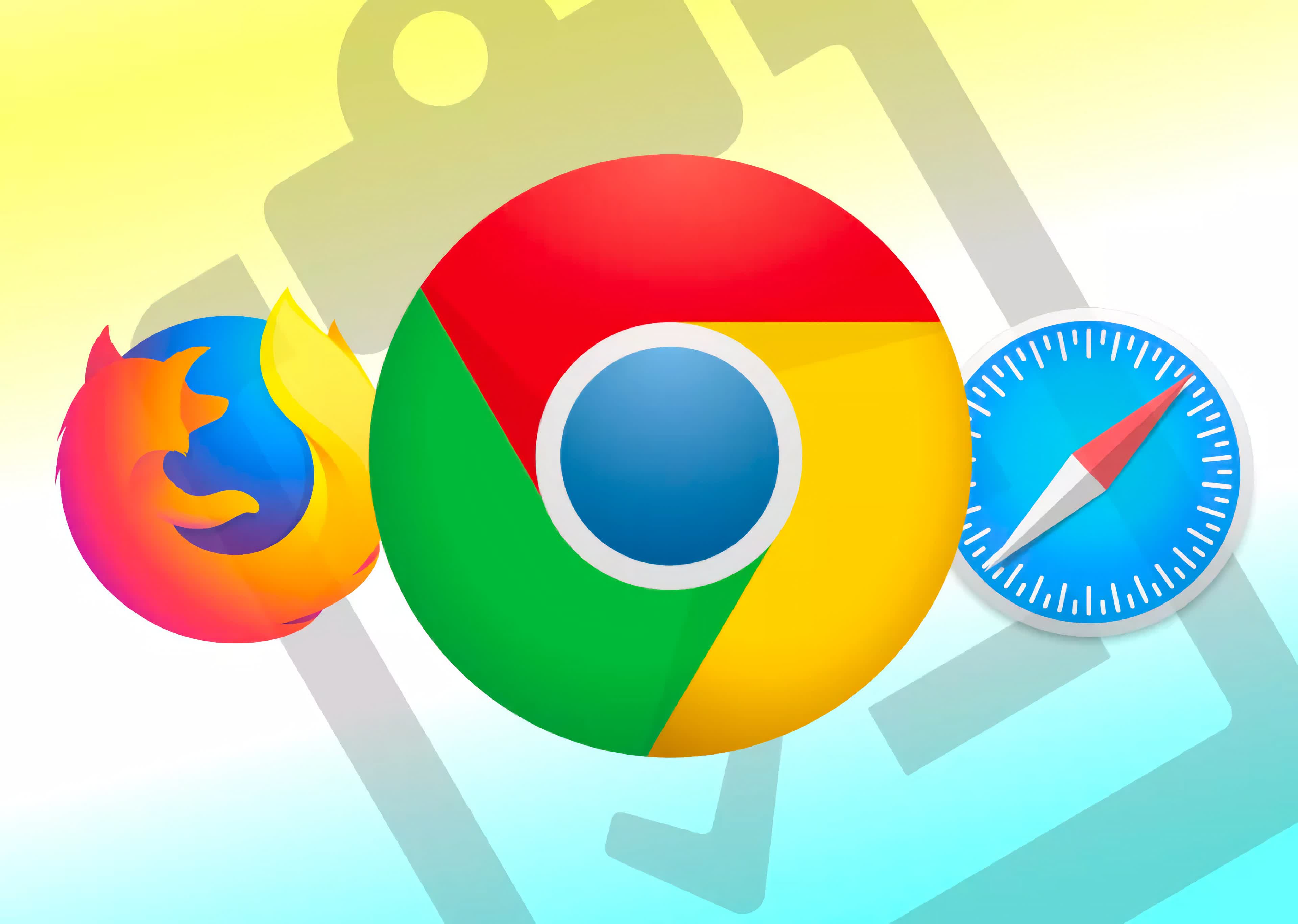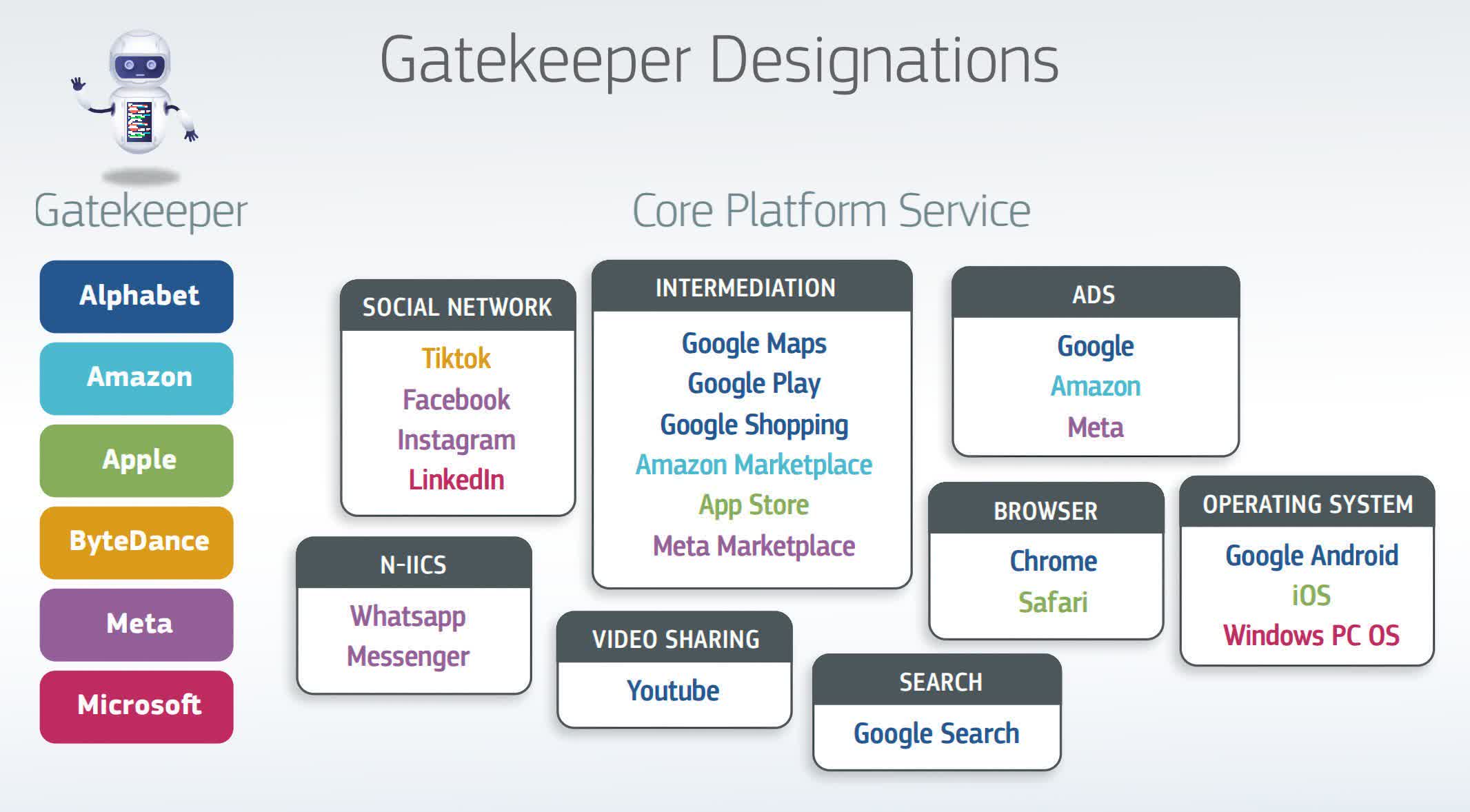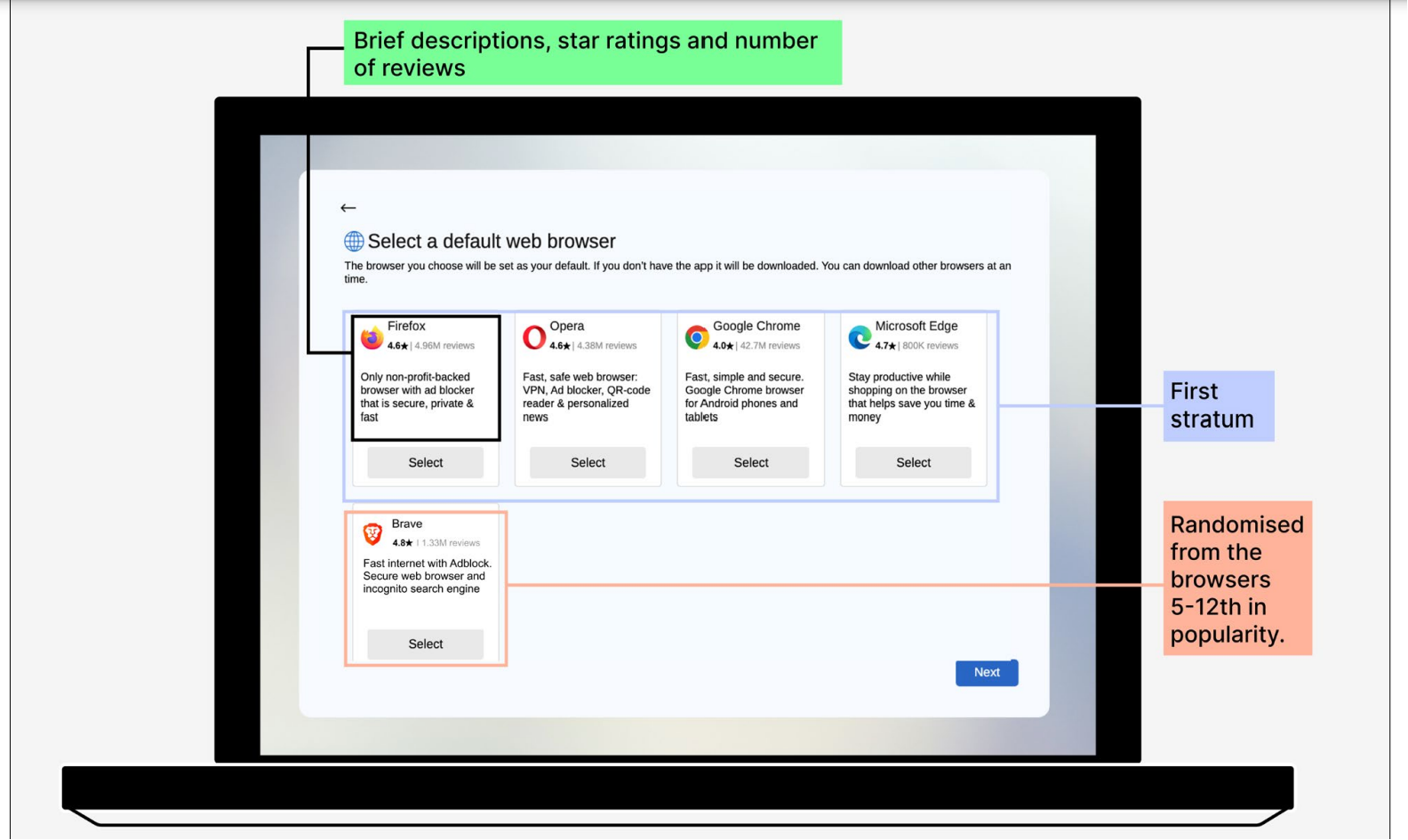In brief: The European Union's Digital Markets Act (DMA) will impose new rules on several tech giants when it's introduced next year, including providing users with browser choice screens that lets them pick a default option. That might sound good, but Mozilla warns that these screens need to be designed in a way that promotes all products equally, not just those from a specific vendor.

In September, the European Commission named the big six gatekeepers that fall under the DMA's purview: Alphabet, Amazon, Apple, ByteDance, Meta, and Microsoft. The three operating systems covered by these companies – Apple iOS, Google Android, and Microsoft Windows – must provide users with browser-choice screens from next year.
Mozilla published a report last week (via The Reg) that highlights the importance of these screens' design.
"Operating systems have the ability and incentive to push people to their products – this is nothing new. We find that even small changes can impact the effectiveness of browser choice remedies," writes the Firefox maker.
The term for this type of subtle manipulation is dark patterns: a way of designing an interface so that it confuses users or tricks them into accepting or choosing something.
Earlier this year, the FTC fined Epic Games $245 million for using dark patterns to trick Fortnite players into making unintended in-game purchases. More recently, the agency sued Amazon for using the technique to allegedly push people into signing up for Prime and then making it difficult to cancel their subscription.
In Mozilla's experiment, 12,000 people from Germany, Spain, and Poland were recruited. Some were not shown a choice screen and their default browser was pre-set. The rest of the participants were presented with a random choice screen that varied along three dimensions: the level of information provided; the number of browsers; and when the choice screen was shown.
Mozilla found five key takeaways:
1. Providing more information and a wider range of browsers on these screens affects user choice, increasing people's satisfaction and the number of times independent browsers are selected. The order in which the browsers are presented also strongly affects choice.
2. Precisely when the screen is shown is an important factor, as people who see one after clicking on the pre-installed browser choose it as their default much more often than those given a choice during setup.
3. Most people prefer a high amount of information about each browser on these screens, such as descriptions, star ratings, and number of reviews.
4. Choice screens improve satisfaction – 98% of people prefer having them – without significantly increasing the amount of time to set up a device.
5. Most importantly, a well-designed browser choice screen moves people away from browsers owned by the OS maker/device manufacturer and increases the share of independent browsers.
Mozilla notes that when companies have been told to include browser choice screens in the past, they were designed in a way to reduce their effectiveness. "For example, the Google 2019 browser choice screen has been shown to have negligible effects," the report explains.
Mozilla says it looks forward to engaging with regulators and other entities to discuss its experiment and explore the results.
https://www.techspot.com/news/100261-mozilla-warns-potential-dark-patterns-new-browser-choice.html

